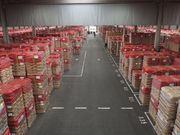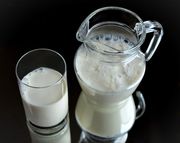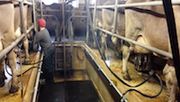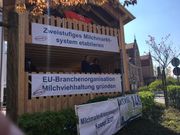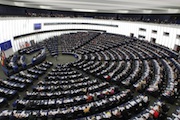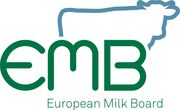EMB Newsletter May 2019
Newsletter as PDF
Contact
EMB - European Milk Board asbl
Rue de la Loi 155
B-1040 Bruxelles
Phone: +32 - 2808 - 1935
Fax: +32 - 2808 - 8265
Dear dairy farmers, dear interested parties,
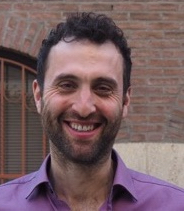
It was a historic moment in the course of the milk-producer movement: West-African dairy farmers stood together with European farmers and both groups called in solidarity for the same thing.
While this solidarity is truly impressive, it is also a reflection of the sad reality that West-African farmers have to travel all the way to Brussels to demonstrate against policies they have had no hand in approving, and have no power to vote against either.
The event was part of the Africa Week organised by the European Milk Board in Brussels and illustrated that those responsible for formulating EU policy are not aware that farming is carried out very differently in the rest of the world. Over 50% of the population of West-Africa is involved in small-scale farming. In many European countries, however, farming is experiencing major technical advances, is becoming more structured and more intensive, and the goal is to produce as much as possible at minimum cost.
Milk is produced on both continents, but we live in two completely different economic worlds. While one side is underpinned by small scale and producing for own consumption, the other side is surviving on intensification and globalisation. The attempt to align these two systems has had catastrophic consequences for the small-scale structures in Africa and for us in Europe as well. At the end of the day, farmers everywhere are suffering.
On a visit to Burkina Faso in West Africa, it was interesting for me see that agricultural policy decisions in Europe do not only greatly affect European dairy farmers, they also spell direct consequences for dairy farmers in third countries, in this case in West Africa, in one of the poorest regions in the world.
It is therefore even more important for us as the EMB to continue to fight for sustainable and fair framework conditions on the dairy market. I was struck by how the West-African dairy farmers approached the event in Brussels will their full energy as well as their complete frustration to showcase the negative effects of the EU's neoliberal market ideology, especially its export orientation, for those in-charge of agricultural policy.
Exchanges with the African colleagues made it clear to me that we need to continue to lobby for our Market Responsibility Programme that would safeguard against milk crises and major milk surpluses. Not only to make the market in Europe fairer and more just, but to protect our friends and colleagues in Africa from dumping as well. Or as my friend Adama Dembele from Mali put it so well: "When you European farmers fight for your interests, you are automatically fighting for the interests of African farmers as well!"
Johannes Pfaller, EMB Executive Committee member and Chairman of the Advisory Board of the German dairy farmers' association BDM
When cheap and too much becomes dumping
Regulating the dairy market "cost European farmers 2.3 billion euros"
Organic milk: Pay attention to the risk of overproduction
Study on supply structure in the dairy sector published
Germany: Milk on the agenda
EMB milk price comparison: Major price differences between dairies within countries
Looking to receive the most important messages from the EMB in a quick and concise manner on WhatsApp?
Thank you very much for your commitment and support!
Agricultural Policy Officer – 75 % position as of mid-June 2019
Impressum
European Milk Board asbl
Rue de la Loi 155
B-1040 Bruxelles
Phone: +32 2808 1935
Fax: +32 2808 8265
E-Mail: office@europeanmilkboard.org
Website: http://www.europeanmilkboard.org


